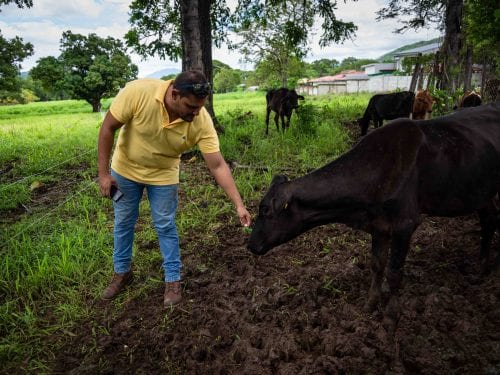
The slow rainy season months of September and October are often equated with limited opportunities for work, and at times transportation hardships due to flooding, which can be a major financial burden on residents here in Guanacaste.
With this added stress, it’s easy to feel overwhelmed. The negative health effects, both physical and emotional, that result from stress around money have been well documented throughout the world. Depression and anxiety around financial concerns can lead to strained relationships and harmful behaviors such as substance abuse or overeating. Therefore, it is critical to manage stress this time of year. Here are some guidelines to help you cope when money is tight.
- If it’s an option, develop new employment skills in order to broaden your possibility of being hired in another realm of work that tends to be more available during the rainy season.
- During high season when work is more plentiful, create a budget to help you save money to allot for slow season. Saving money when there is more available rather than spending it all at once will significantly help reduce stress when money is tight.
- When emotions such as frustration, worry and fear arise around your situation, it is especially important to take care of your health by staying active and engaged with family and friends and partaking in pleasurable activities. Remember to eat well and get enough sleep.
- Keep things in perspective. Be aware of what is going well in your life and remain hopeful. One way to track your feelings of positivity is to keep a journal. For a quick boost when you’re feeling down, re-read what you’ve written in your journal.
- Connect with your significant other. Now is the time to make an extra effort to communicate and look to one another for support. Engage in conversation with minimal distractions and participate in activities together. Avoid excessive complaining to one another to keep tension levels low.
- Give to others to increase your sense of well-being. Helping others has been shown time and time again to make us feel good. It can be as simple as giving someone a small but meaningful gift or helping them out when they are in need.
- If you are the type of person who isolates when feeling overwhelmed and stressed, make an extra effort to set up a support system. Share your feelings openly with family and friends, a pastor or spiritual leader, mentor or someone you trust who can provide important emotional support that is needed during this time.
- And finally, realize that you are not alone. Acknowledge that this is a difficult time of year for many. Take the blame off yourself, practice compassion for yourself and others and do what it takes to remain hopeful and healthy.







Comments